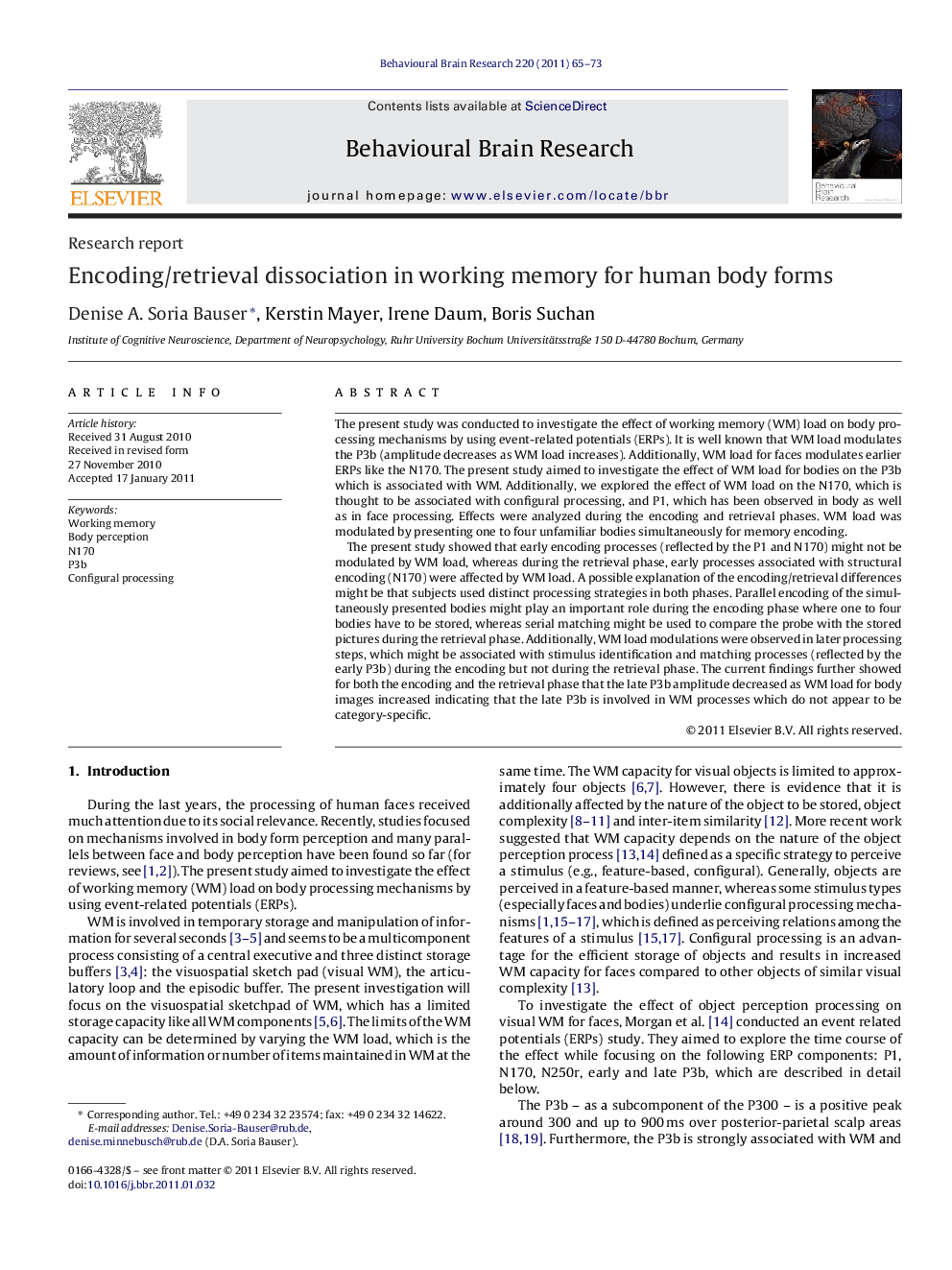| کد مقاله | کد نشریه | سال انتشار | مقاله انگلیسی | نسخه تمام متن |
|---|---|---|---|---|
| 4313773 | 1290009 | 2011 | 9 صفحه PDF | دانلود رایگان |

The present study was conducted to investigate the effect of working memory (WM) load on body processing mechanisms by using event-related potentials (ERPs). It is well known that WM load modulates the P3b (amplitude decreases as WM load increases). Additionally, WM load for faces modulates earlier ERPs like the N170. The present study aimed to investigate the effect of WM load for bodies on the P3b which is associated with WM. Additionally, we explored the effect of WM load on the N170, which is thought to be associated with configural processing, and P1, which has been observed in body as well as in face processing. Effects were analyzed during the encoding and retrieval phases. WM load was modulated by presenting one to four unfamiliar bodies simultaneously for memory encoding.The present study showed that early encoding processes (reflected by the P1 and N170) might not be modulated by WM load, whereas during the retrieval phase, early processes associated with structural encoding (N170) were affected by WM load. A possible explanation of the encoding/retrieval differences might be that subjects used distinct processing strategies in both phases. Parallel encoding of the simultaneously presented bodies might play an important role during the encoding phase where one to four bodies have to be stored, whereas serial matching might be used to compare the probe with the stored pictures during the retrieval phase. Additionally, WM load modulations were observed in later processing steps, which might be associated with stimulus identification and matching processes (reflected by the early P3b) during the encoding but not during the retrieval phase. The current findings further showed for both the encoding and the retrieval phase that the late P3b amplitude decreased as WM load for body images increased indicating that the late P3b is involved in WM processes which do not appear to be category-specific.
Research highlights
► Early encoding processes might not be modulated by WM load.
► During the retrieval phase, early processes were affected by WM load.
► Subjects used distinct processing strategies in both phases.
► WM load modulations were observed in later processing steps.
► Late P3b is involved in WM processes which do not appear to be category-specific.
Journal: Behavioural Brain Research - Volume 220, Issue 1, 20 June 2011, Pages 65–73